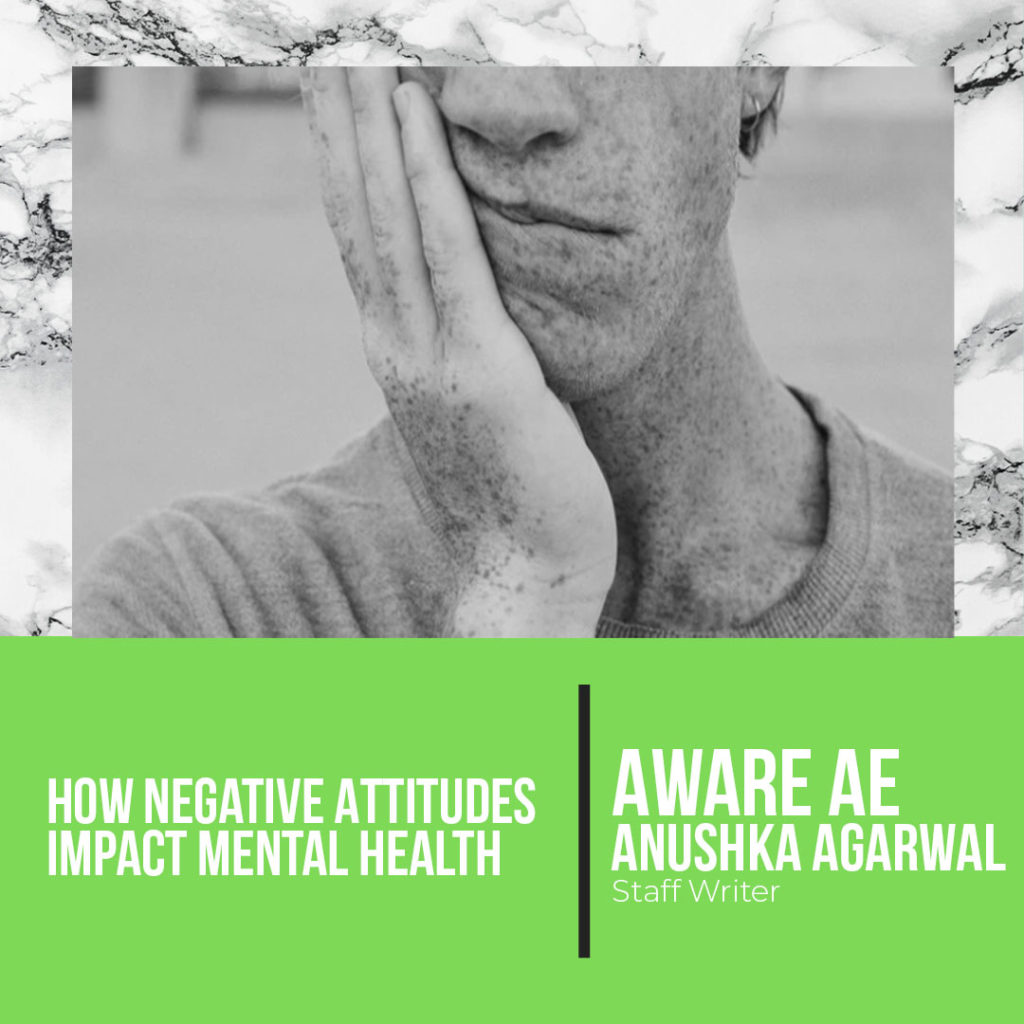Your attitude determines your mindset and how other people perceive you from the first impression. This procures the question, “what is a negative mindset?”. This includes people who pay attention to the bad aspects in situations and events, which is detrimental to an individual. Having a negative attitude consequently results in a pessimistic thought process and overall ideals. These individuals will tend to see limitations, and this leads to the creation of numerous problems.
The Correlation Between Attitude and Mental Health
Negative attitudes and feelings of helplessness and hopelessness can create chronic stress, which upsets the body’s hormone balance, depletes the brain chemicals required for happiness, and damages the immune system. Chronic stress can actually decrease our lifespan. Science has now identified that stress shortens the “end caps” of our DNA strands, which causes us to age more quickly. Therefore, not only is a negative attitude bad for mental health, but it is also extremely detrimental for our overall health.
Negativity Bias
Have you ever found yourself fixating on your mistakes? Criticisms often have a greater impact than compliments, and bad news frequently does more harm than good. Psychologists refer to this as the negativity bias, and it can have a powerful effect on your behavior, your decisions, and even your relationships.
The negativity bias means that we spend too much time ruminating over the minor frustrations we experience and ignore the many chances we have to experience wonder, awe, and gratitude throughout the day. However, even when we experience numerous good events in one day, negativity bias can cause us to focus on the sole bad thing that occurred. It can lead us to ruminate on small things, worry over having made a bad impression, and linger on negative comments. It isdifficult to debate that negative biases are not still helpful in some circumstances, but as we grow and society develops, this hard-wired tendency is not as useful as it once was.
How to Overcome Negative Biases
- Appreciate positive moments – Because it takes more for positive experiences to be remembered, it is important to give extra attention to good things that happen. Where negative things might be quickly transferred and stored in your long-term memory, you need to make more of an effort to get the same effect from happy moments.
- Find new patterns – When you find yourself ruminating on things, look for an uplifting activity to pull yourself out of this negative mindset. For example, if you find yourself mentally reviewing some unpleasant event or outcome, consciously try to redirect your attention elsewhere and engage in an activity that brings you joy.
- Re-imagine the situation – How you talk to yourself about events, experiences, and people plays a large role in shaping how you interpret events. When you find yourself interpreting something in a negative way, or only focusing on the bad aspect of the situation, look for ways to reframe the events in a more positive light.
- Mindfulness – Practicing mindfulness is one good way to become more attuned to your own emotions. Through guided meditations, reflection, and other mindfulness interventions, you can start to observe your feelings and thoughts more objectively.
If you ever find yourself trapped in the endless cycle of a negativity bias, then here are a few exercises you can try to practice mindfulness –
- Inhale softly, taking in light, love, and healing energy. Picture this as clear, bright, or sparkling. Feel yourself becoming brighter as you fill with light and joy.
- Exhale fully, releasing any negative states or feelings. You may picture it as darkness or a fog. If you have anger, fear or sadness, breathe them out. If you have tension, anxieties, or worries, release them as you exhale.
